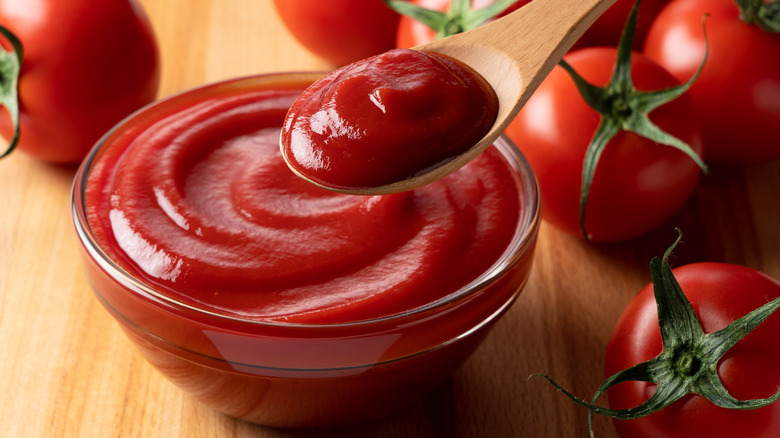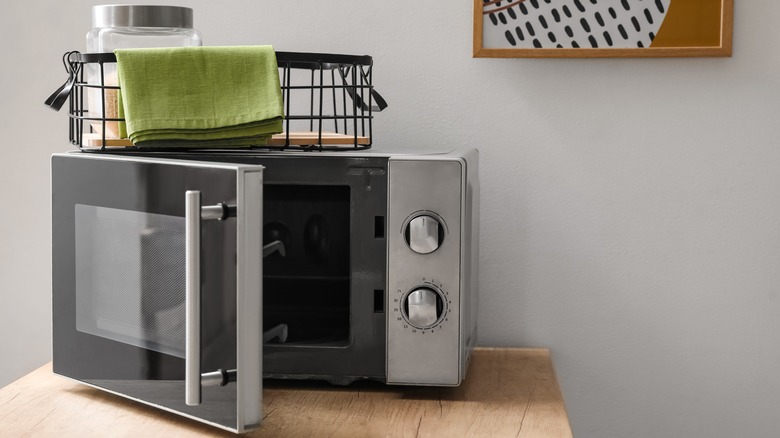Why You Should Never Microwave Ketchup
You see it drizzled on burger patties, served alongside crispy French fries, and even used to add brightness to scrambled eggs. Of course, we're talking about one of the most popular condiments on the planet: ketchup.
The acidity and tomato-based profile of ketchup certainly pair well with lots of dishes, but it can also be incorporated into sauce-based recipes, such as sloppy joes, smoked links, and a sweet and tangy BBQ sauce. This is especially true if you travel overseas, where you'll find ketchup used as one of the primary ingredients in many entrées. In Japan, for instance, Kagome tomato ketchup replaces those classic marinara flavors in ketchup spaghetti, otherwise known as Napolitan, per Just One Cookbook. Or, in Canada, you may come across a ketchup cake, which looks similar to a red velvet cake but contains ketchup alongside other standard cake ingredients, via Good Housekeeping.
Now, since ketchup can be heated in a pan (with other ingredients) to make some of the above dishes, one may start to ponder if you can heat it in a microwave instead — to save time. But unfortunately, ketchup's versatility comes to a screeching halt when it comes in contact with a working microwave. Here's why that is so.
A very messy microwave
Can You Microwave This explains that if you microwave ketchup, you'll get burnt tomato pulp that smells and tastes awful. But even worse, ketchup may explode if it's microwaved in its aluminum foil packets (we're talking about those little ketchup packets that fast-food restaurants give you). This is because of the electric fields in microwaves, which make charges move through metal. Since metal becomes taken aback by these currants, it starts to spark and catch fire shortly after being heated, as told by Reuters.
But surely, microwaving a plastic ketchup bottle would be a better alternative, right? Well, not if you want a different kind of ketchup explosion, per Kitchen Appliance Answer. They state that when you microwave such a bottle, there's pressure inside that gets bigger and bigger and eventually causes an eruption.
If you like a little bit of science, PSC explains that there are Newtonian fluids, like water, and non-Newtonian fluids, like ketchup. Newtonian fluids don't change their viscosity or thickness if you add stress to them, whereas non-Newtonian fluids do. Furthermore, they state that the viscosity diminishes with increasing flow speed when non-Newtonian fluids begin to move in response to pressure. Kitchen Appliance Answer piggybacks on this by noting that because of the condiment's viscosity, it can still burn inside a microwave-safe container.
So, in short, it's best to avoid microwaving ketchup altogether to keep your microwave spotless.

